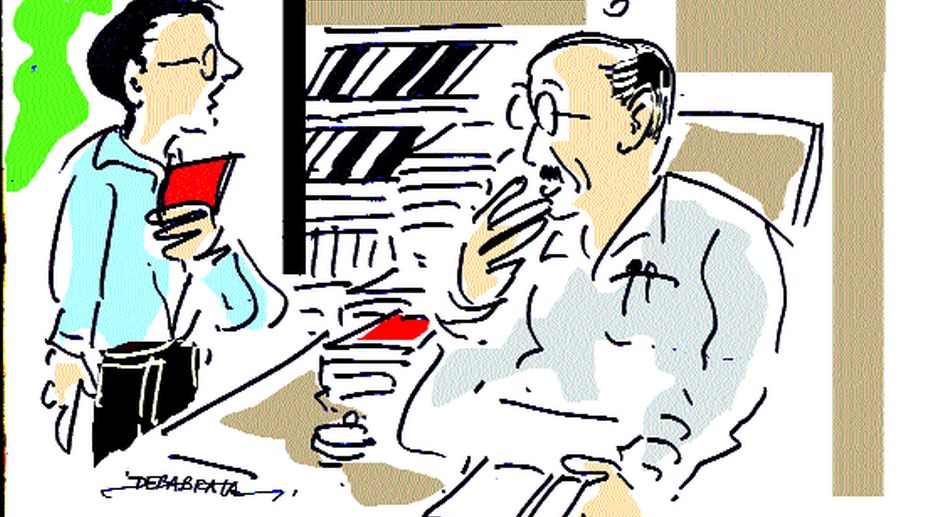Canada Liberal Party elects Carney to succeed Trudeau, face Trump’s challenge
Canada’s Liberal Party has elected a financial expert, Mark Carney, to guide the nation through the showdown with US President Donald Trump.

One of the first sketches I wrote for the college magazine – now, alas, irretrievably lost – was about an imaginary heroic character called Roy. Roy was soft-spoken but strong, mild mannered but steadfast. He spoke truth to power and championed lost causes. A rugged scholar, he was by profession a librarian.
That confused my friends and readers. A librarian? It was clear to me that nobody thought of the librarian as a heroic figure. A librarian was expected to be a namby-pamby clerk, who kept an inventory of books and loaned them to scholars and students for short periods – and pestered them if the books were not returned in time. In the US, the image was that of a woman with moon glasses, gray hair in a bun, shuffling about noiselessly, shelving books and maintaining a place of sepulchral silence.
Advertisement
This was vastly different from my mental picture. To me a library was a magical kingdom, where everything was possible. And everything happened. Every villain had his comeuppance at the hands of the just hero; every detective followed abstruse clues to the right murderer; and every prince found the impeccably beautiful, doe-eyed princess. There you discovered mysterious new worlds. How two brothers worked on an impossible dream and started flying. How Eskimos built houses of ice and raised families in them. How an arrogant boy from tiny Macedonia made huge empires prostrate at his feet. And how – trust the avid adolescent to look for that above all – men and women come together to have fun and produce babies.
Advertisement
To be sure, the aura of books for me came partly from their sheer scarcity in the India of the 1950s and sixties. There were few community libraries and their collections were pathetic. Schools and colleges had outdated inventories, and restrictive library practices seemed designed to keep students away from books. Open access was unthinkable and you could get only one or two books on loan at a time.
The US and British Embassies created a sensation in my city, Kolkata, by opening large libraries where you could walk up to the shelves, browse to your heart’s content and sit and read as long as you liked. I became a member of as many libraries as I could, and then persuaded friends who worked for academic and professional organisations (and never used their large libraries) to let me use their membership cards.
When I moved to the US, I was delighted by the easy availability of books in large stores and also in libraries. The delight has shrunk over the years as libraries have reduced their staff, working hours and new acquisitions. Smaller budgets have gone mostly to popular magazines and best-selling potboilers, and the focus has moved to useful and how-to literature. Serving the community is a laudable goal, and librarians seem largely devoted to improving literacy, assisting seniors and children, helping the disabled and educating the computer Luddites.
All are perfectly understandable and perhaps defensible. Yet I cling to my idea of the library as a magical kingdom, where impossible things can and do happen. Where your mind is blown by staggering new ideas, your imagination takes awesome leaps as you discover a new poem or play, your heart expands and sings as you read Murakami, Kundera or Rushdie, and you finally know what it is to be truly alive. A library, above all, is a haven where you discover yourself, joyfully and with abandon.
Roy, the librarian I had imagined in my college days, was modeled on an elderly friend I had acquired, a man who after a successful career as a professor and senior administrator had decided he wanted to be a librarian. He served as a wonderful mentor in a professional organisation to students and executives alike, and opened new doors for anybody who cared to walk through his library doors. He was a miracle worker and I am thankful he introduced me to the miracle that a library can be.
The writer is a Washington-based international development advisor and had worked with the World Bank. He can be reached at mnandy@gmail.com
Advertisement